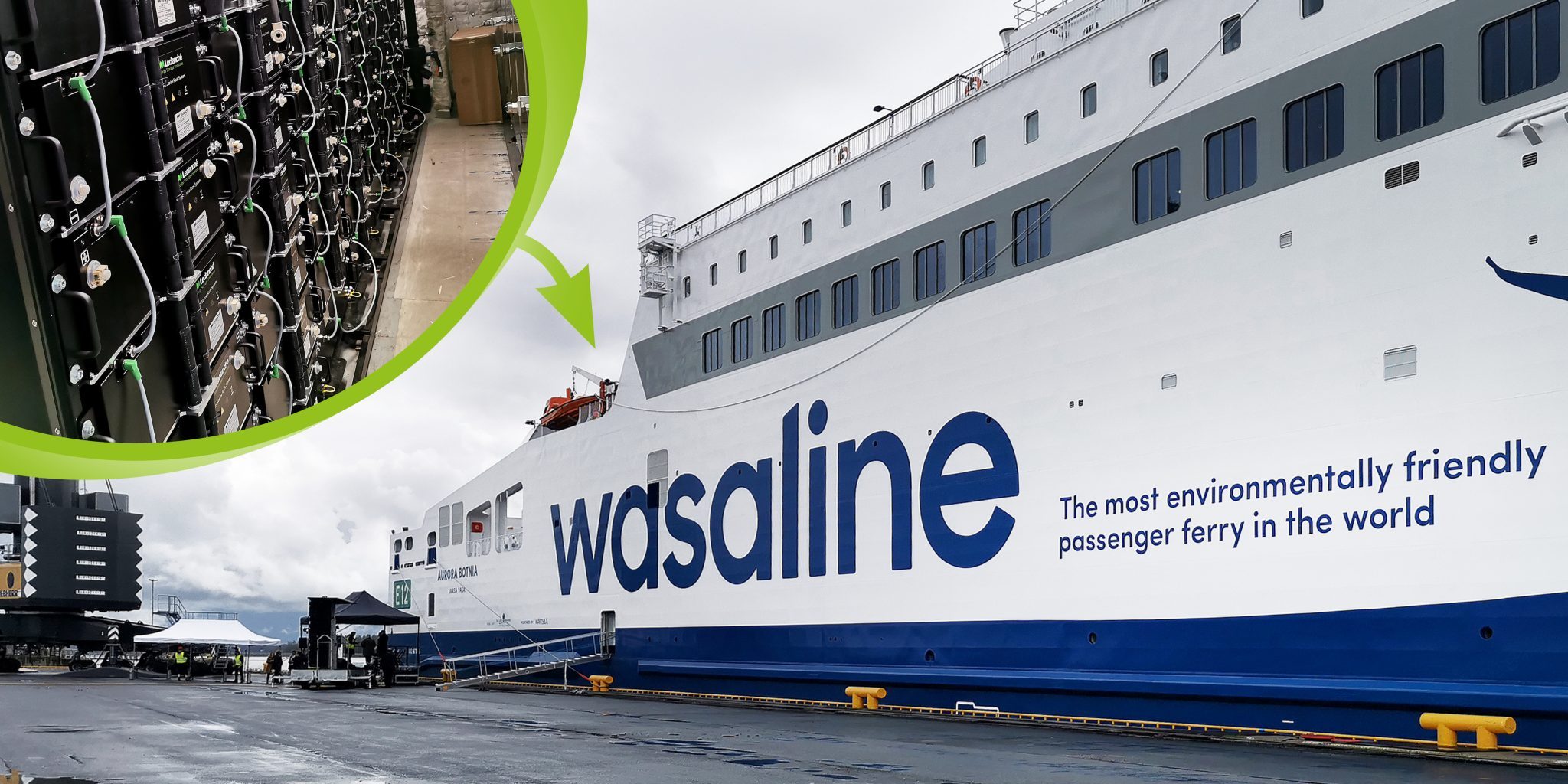We research: Safer use of batteries in seafaring
Seafaring and shipbuilding are now strongly shaped by different levels of digitalisation and measures towards carbon neutrality. More and more often the ships under construction in shipyards are becoming so called hybrid vessels, in which large lithium battery systems are being installed alongside traditional combustion engines.

Propellers are used to move the ship, both at the stern and at the bow, and nowadays this often happens with electricity, regardless of how the electricity is produced in the vessel.
As with electric cars and electric aircrafts, nowadays also ships can use a battery either as a primary source of power or secondary auxiliary source of power by attaching it to the ship’s electrical system and electric motors. Electric motors rotate the propellers and move the ship.
This development enables operating even completely without traditional combustion engines, but so far the large size of batteries has limited fully electric seafaring only to small vessels or very short-term use. However, it has been possible to deploy an all-electric vessel already in ferry traffic, for example, in which short distances allow adequate recharging of the battery.
In addition to the ship’s own battery system, more and more hybrid and all-electric cars are transported on ships in the future, for example on drive-on passenger ferries in the Baltic Sea. Therefore, electric cars pose an increased risk on ships as a source of battery fires, and as target for the spread of a fire.
The use of batteries in vessels' electrical systems can vary greatly
Traditionally the vessels’ battery systems have been needed e.g. as a backup system alongside the usual electricity network, for example ensuring the smooth operation of navigation instruments and equalizing possible current peaks. In new vessels the situation is rapidly developing into wider securement of the whole network.
Nowadays, as the batteries are developing at an accelerating pace, big lithium batteries are also gradually used as a source of power and as different combinations with other technologies of the ship. Environmental consciousness and the rise of fuel prices lead to developing more and more carbon neutral solutions and experimenting integration on ships. The aim is to operate the ship in the most environmentally and energy efficient way, where wanted and when wanted.
Even though rating institutions offer guidelines and regulations on the installation of vessels’ battery systems, the information focuses on the time preceding the use. Research data on sites requiring post-installation attention is lacking both nationally and internationally.
The AlusAkku research focuses on gathering the missing data
The AlusAkku project does research on 1) the current situation, electrical engineering and operation of vessel battery systems, 2) the technical and operative risks of the battery systems and their management, 3) the key aspects of maintenance and 4) the increased risk of electric cars and the possibilities to control these risks.
The research focuses on gathering data of e.g. the electrical safety of battery systems throughout their life cycle, their operation in events of failure and the required expertise for maintenance situations. There hasn’t been much information on these topics, e.g. research data on fire situations on ships does not yet exist. There is also deficiency in knowledge related to practical skills, e.g. how the significance of the stages of electric car transport can be evaluated from a risk perspective or how to control and extinguish a battery fire.
The usability of the research creates a basis for improving safety in case of ship battery fires
With the development of new battery technology, many issues will be resolved in time, but due to its topicality, the aspect of improving the safety of operating time has been strongly present in AlusAkku data collection. The results enable the usability of the collected data, e.g. in observing the special features, preventing and extinguishing of battery fires.
As the shipping companies have little research data or instructions on battery malfunction situations or fire handling, a need for basic enhancement of battery knowledge has been detected, concerning e.g. the properties of the materials used in the manufacture of different batteries in different situations, their benefits and risks.
The research data can be utilized to increase the knowledge of the personnel in ship and port organizations regarding the risks related to dealing with lithium batteries. The results of AlusAkku research are an impulse for further research on the topic, which, as it becomes more widespread, quickly affects a growing group of people and their safety on ships and in ports.
Did you know?
- Finland and the Satakunta region specialize in the construction of challenging and high-tech passenger ships, e.g. the research’s pilot vessel Wasaline Aurora Botnia, which operates on LNG/biogas/diesel combination and lithium battery system. In fact, the vessel became the world’s most environmentally friendly ship, built according to the regulations of Clean Design.
- The long storage time of electric cars in the port area/terminal also requires building a charging infrastructure in the area.
- Transporting a damaged/crashed electric car on land/sea requires special measures to ensure the safety.
